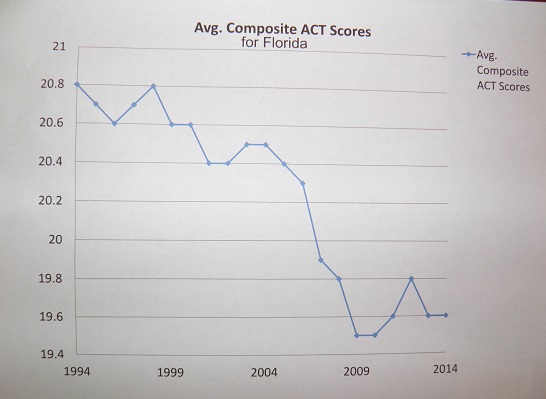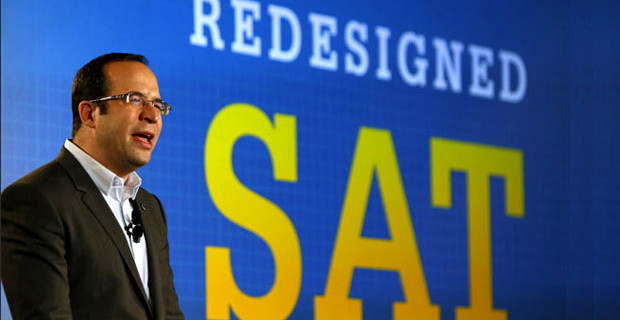Recently, Cal Thomas, in what has become a journalistic ritual, bemoaned the loss of knowledge about American history in a column titled “D-Day=Dumb Day for Many.” This historical occasion was the 70th anniversary of D-Day on June 6. Thomas cited a study by the American Council of Trustees and Alumni that showed only 70 percent of recent college graduates knew that D-Day occurred during World War II. This and other dismal statistics revealing historical ignorance were attributed to the fact that very few colleges require survey courses on American history.
But Thomas, and others similarly concerned, might be surprised to learn that not only is American history being overlooked, but that a movement among many history professors has been underway to eliminate the very category of “American history,” and even the idea of the United States as a legitimate nation. While attending the annual conference of the Organization of American Historians, I learned about such “reframing of history.”
The OAH claims to be “the largest professional society dedicated to the teaching and study of American history,” but its members seem to have a limited view and that is of the United States as an overwhelmingly oppressive, unjust – and illegitimate – nation.
This year’s conference theme, “Crossing Borders,” focused on slavery and segregation in the past, and on supposed persecution of “immigrants” (illegal aliens) in the present. Assumptions reigned among the panels I sat in on: ACORN was good, objections to forced busing for school integration were bad, the 1964 presidential election that allowed Lyndon Johnson to institute metastasizing federal programs was a positive counterforce to the election of Richard Nixon and the rise of the “right-wing.” The Plenary Session, “Remembering and Reassessing the Mississippi Summer Project” included activists from that summer of 1964, Dorie Ladner, Rita Bender, and Charles E. Cobb, singing praises to Julian Bond, Stokely Carmichael, Tom Hayden, John Lewis, Harry Belafonte, Noam Chomsky, and Frantz Fannon. In the sprawling vendors area, publishers plied books for high school and college, including the graphic adaptation of Howard Zinn’s A People’s History of American Empire, Eric Foner’s Who Owns History?, and paeans to Margaret Sanger, Mother Jones, Hugo Chavez, and Earth Day.
The strategies for teaching to the new A.P. U.S. History exam, discussed in one panel, were in keeping with the conference’s theme. But the genesis for such anti-Americanism became apparent in another session called “Internationalizing American History: Assessment and Future Directions”; it focused on the deliberate effort to teach American history from a “cosmopolitan” perspective, with that meaning incorporating the views of foreigners who do not believe in the legitimacy of this nation. At that session, I heard the phrase “what used to be called” prefacing “Early American History,” “the American Revolution,” and the “creation of the American republic.” The promotion of Common Core as presumably “internationally benchmarked” is no coincidence: historians have been working on imposing the “cosmopolitan” perspectives of history, a specific aspect of Common Core criticized by George Will.
The Prevailing View
Panelist Jane Kamensky of Brandeis University started off by declaring that American history needs to be “rescued from not only the national but from the nationalist framework” and that we must study a “diasporic” revolution involving “freedom struggles against imperial masters” of indigenous peoples.
Johann Neem of Western Washington University dissented by offering Hegelian theories about particularity and relationships as an argument for retaining the category of “nation.” He noted that works of the eighteenth-and-nineteenth-centuries are filled with “tolerance” for diversity, even though our national identity is mostly white Protestant. Neem is author of Creating a Nation of Joiners: Democracy and Civil Society in Early National Massachusetts.
The next panelist, Kristin Hoganson of the University of Illinois at Urbana-Champaign, challenged the idea that American history should be a national history. She cited three books that reveal how “partial” our histories have been: Taking Haiti: Military Occupation and the Culture of U.S. Imperialism, 1915-1940, The Blood of Government: Race, Empire, the United States & the Philippines, and Colonial Crucible: Empire in the Making of the Modern American State. Apparently, no history of “what used to be called the United States” is complete without a reference to occupation, imperialism, blood, and empire. Hoganson gave credit to Thomas Bender (New York University), the commentator on the panel, for making a “powerful case” for the “need for more transimperial history,” with his book, Rethinking American History in a Global Age.
Kiran Klaus Patel of Maastricht University in the Netherlands suggested a more European, “transnational” approach to the study of American history, and destabilizing boundaries. Fortunately, to him, in the 1980s and 1990s cultural history transformed all of history, including diplomatic history.
Judy Tzu-Chun Wu of The Ohio State University, where she has a joint appointment in the Department of Women’s, Gender, and Sexuality Studies, asserted that there is need for more “global, gendered analysis,” for example, of how women opposed the Vietnam War, the subject of her second book, Radicals on the Road: Internationalism, Orientalism, and Feminism during the Vietnam Era. Her first book was Dr. Mom Chung of the Fair-Haired Bastards: The Life of a Wartime Celebrity.
Thomas Bender, considered the founder of the “transnational turn,” approvingly asserted, “The panel has embraced the international historiographical approach”– “except for one skeptic on the panel” (Neem). Bender suggested pushing students in the new direction of “entanglement with the planet, people, and nations,” requiring them to learn foreign languages like Arabic and Chinese. Jobs in the future, he said, will be in history that transcends the idea of “American history.”
The History of the Transnational Turn of History
I was shocked that history professors would want to eliminate American history as such. But then I learned that this “transnational” effort began in 1996. Under the direction of Bender, the Organization of American Historians and New York University’s International Center for Advanced Studies jointly established the Project on Internationalizing the Study of American History. They then met in Villa La Pietra, New York University’s Center in Florence, Italy, in 1997, 1998, 1999, and 2000.
According to “The LaPietra Report,” the historians spent the first year at the Villa planning, then the next discussing “the theoretical issues that attended the project’s reconsideration of the assumptions that determined the temporal and spatial scales of conventional national historical narratives.” The third conference resulted in “exemplary” essays “probing either particular themes or reframing conventional historical movements or periods from a more international perspective.” The final meeting, in 2000, put attention on the “practical implications of the intellectual agenda.”
The Practical Implications
The practical implications include a “reframing of American history” in college and in K-12 education.
Such reframing includes preparing “globally competent citizens,” the aim of Common Core. The as-yet voluntary “College, Career, and Civic Life (c3) Framework for Social Studies State Standards” replace knowledge about American history with activism and follow those set for college in the Department of Education’s 2012 report, “A Crucible Moment” (roundly criticized by the National Association of Scholars in a special issue of Academic Questions). Replacing factual questions of traditional “national historical narratives” are loaded questions, as high school, and even younger, students are asked to evaluate primary and secondary sources, think “critically” and “deeply,” and “grasp the relevance of widening the lens of social analysis.”
It is no wonder that History Literacy rates continue to plummet.
Unlike the vast majority of professors at OAH, Robert Paquette, Hamilton College History Professor who co-founded the independent Alexander Hamilton Institute for the Study of Western Civilization, teaches his students “that the United States was founded on the principles of limited government, voluntary exchange, respect for private property, and civil freedom.” In a recent SeeThruED article, he criticized the neglect of American history, noting that not one of the eleven New England Small College Athletic Conference (NESCAC) schools requires that undergraduates attend a single course in American history and “a substantial majority of these eleven elite colleges do not even require of their majors in history as many as one American history course.”
Paquette warns, “The United States cannot survive as a nation if the traditions and principles that made it cohere as a prosperous and distinctive country are distorted and marginalized.”
Cal Thomas makes a similar point in his column, remarking poignantly about the World War II veterans visiting the beaches of Normandy, probably for the last time in their lives: “if they could have foreseen what America would become and how little their descendents know, or care, about their sacrifice, would they have done what they did?”
But student ignorance is the aim of professors and teachers meeting at conferences that we pay for in taxes and tuition. While the Greatest Generation remembered D-Day, influential professors spent summers in an Italian villa discussing how to destroy the very idea of the United States in history classes. And then they congratulated themselves at a conference in Atlanta in 2014.




















